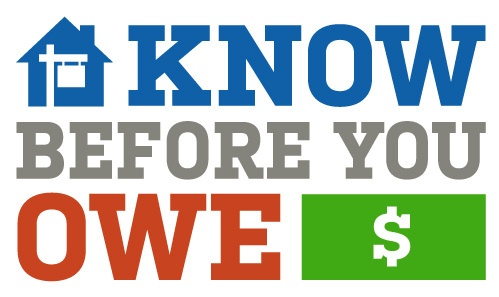
When you are a Buyer, knowledge is power. And The Consumer Financial Protection Bureau knows that. They have worked diligently to make the loan process more transparent. The forms discussed below (the Loan Estimate and Closing Disclosure) were introduced to present less confusing information as to ensure consumers understand the terms of their loan and the fees they’re paying. Know before you owe!
To walk the walk, you have to talk the talk. Here is the new lingo and the new forms.
Let’s talk Terminology:
A lender is now a “Creditor”
The Good Faith Estimate (GFE) is now the “Loan Estimate” or LE for short.
HUD or Settlement Statement is now your “Closing Disclosure” or CD for short.
The GFE was meant to provide the buyer with a really good idea of what they’d be bringing to closing and the terms of their loan. But the rules behind its successor, the LE, are stricter and provide higher financial accuracy to the buyer. It includes the interest rate, fees for both creditor and third-party services (ie: appraisals, title insurance, closing costs, etc.)
Before you do anything, shop around for a lender and get prequalified for a loan. There’s little advantage to visiting with a Real Estate Agent until you know what you can afford.
First, you get prequalified, then you work with a Realtor who finds you the perfect home, and then comes your Loan Estimate.
SIX ELEMENTS TO GET THE LOAN ESTIMATE
- The consumer’s name
- The consumer’s income
- The consumer’s SSN to obtain a credit report (creditor shopping will NOT affect credit rating)
- Property address
- An estimate of the value of the property
- The mortgage loan amount sought
CLARIFY!
The prequal is NOT a Loan Estimate. If the consumer/buyer requests a preapproval or prequalification and provides 5 of these 6 elements in their application, the creditor will provide the prequalification, but is not yet obligated to provide the LE.
Only when the consumer provides all six elements of the application, the creditor must get the LE to the consumer within 3 Federal Business days (if the creditor is open on Saturday, then Saturday counts). Once provided, the LE holds true for 10 days once a property has been determined.
The home does not actually have to be under contract at this point, but it greatly benefits the buyer if it is. Without knowing which title company the contract will be at, your creditor can’t know the exact fees. With the new LE, the liability and financial accuracy weighs much heavier on the creditor than it did in the past. So what if there are differences presented on your final CD than those on your LE? There are zero tolerance fees, and fees that fall between a 10% tolerance. So if there is a difference between your CD and your LE, depending on which category the miscalculation falls under, the creditor may have to pay.
Moral is, sellers want strong buyers. Preapproval from a creditor shows just that, which is why it’s critical to get that first. Present that to your Realtor, house hunt, get under contract, and request the LE. Leave the rest to your happy and knowledgeable Realtor.
We’ll leave the changes to the consummation (the new term for closing) for a later discussion…






